By Xoel Cardenas, Sr. Communications Specialist, Office of the Vice President for Research
Applying for funding is a figurative bridge that every researcher needs to cross. Putting together a successful grant proposal for your research project/investigation can be easier said than done. While there are no perfect formulas to guaranteed grant proposal approval, there are definitely things an investigator should know to do in order for their proposal to have a solid chance of approval.
We asked Dr. Jesse Morris, Director of Research Education and Research Associate Professor with the Geography Department at the University of Utah, to give us tips and advice on how to put together a successful grant proposal. Dr. Morris focuses his research on looking at forest conditions, specifically conifers, and has had his share of grant proposals approved — and a few rejected — so he knows both sides of grant proposal outcomes.
Q: Dr. Morris, what is arguably the most important thing(s) when piecing together (or writing) a grant proposal?
Morris: Start early. There is no substitute for giving your team sufficient time to develop a competitive proposal. A proposal is not just writing and preliminary analysis – which may require considerable effort on their own. Most major federal agencies require numerous ancillary documents as well as various institutional assurances. Many of these are not completed by the investigators and require cooperation for other professionals that have competing priorities and projects. You owe it to yourself to budget time for a review by a grant specialist and at least one trusted colleague or mentor prior to submission.
Q: In your experience, what do you feel is the biggest mistake researchers make when their grant proposal is not approved/rejected?
Morris: Give yourself time to process the rejection and then move on. It is OK to feel disappointed. You may feel frustrated that a reviewer was nasty or missed a key detail. It happens to everyone. Don’t take it personally. Give yourself 48 hours and let it go. When you can read the reviews with detachment then set up an appointment with the program officer that signed your reviews. Don’t assume that you need to write a “Response to Reviewers” when you re-submit your proposal — expectations vary across agencies and panels.
Q: What makes a successful grant proposal stand out, in your opinion?
Morris: Most successful grant proposals share many commonalities. Such as:
- Inclusion of preliminary data sufficient to establish a reasonable expectation that the project will succeed.
- Demonstrating clear societal benefits that address an urgent problem in alignment with agency priorities. Lead with this information and you will capture the attention of skeptical reviewers and program officers.
- Presenting a well-written, cohesive proposal with high quality figures, tables, and diagrams. Reviewers are busy and tired, and most of them wearily agreed to evaluate a stack of proposals because the care deeply about science. Acknowledge their dedication by setting aside adequate time to craft a compelling proposal. Also, respect that the public funds you are requesting have cleared enormous procedural and political hurdles to become available to you. The federal workers tasked with dispensing these funds are professionally accountable for how they are spent. Be mindful of what is on the line for them and take care in how you approach your grant writing and your communications.
Q: If you had a researcher who is going to write their first grant proposal, what’s your short pep talk to help motivate them?
Morris: Start by determining your needs. Do you already have preliminary data to justify a major proposal? If not, consider applying for a seed grant to generate new data. Do you know what a successful proposal looks like for your target agency? If not, ask a colleague or join one of the many grant writing classes we offer here at the U to get up-to-speed.
As you begin to write to a major agency proposal remember three things:
1. Successful grant writing persuades. You must convince skeptical reviewers and program managers that your research is worth investment. By investment, I mean that the agency and American society at large will see substantive returns on tax-payer money spent. Through our grad school and postdoctoral experiences, we become highly skilled in academic writing, which at its core merely informs. While your proposals will leverage this expertise, if you approach grant writing like writing a manuscript for publication, you will not get funded. You must write to persuade.
2. You can compete even at an early career stage. Most major agencies earmark funds for new investigators and they absolutely want to fund new scientists with fresh ideas just like you. You may not get funded on the first try but don’t psyche yourself out by comparing yourself to established leaders in your field (comparison is the thief of joy!). Which brings me to my third point …
3. Even the most grizzled, eminent researchers routinely experience rejection. Keep trying. Over time, you will write stronger proposals and I promise that you will get funded. I submitted six unsuccessful National Science Foundation proposals and then suddenly had two proposals funded back-to-back. Be patient with yourself — you are learning a new skill. But stick with the process and you will succeed. If you need support, ask for it. The University of Utah has many excellent resources to help you hone your grant writing skills. If you aren’t sure where to start, email me. Even though your successes and rejections will feel personal, we have a strong, supportive community here willing to share tips and advice.
